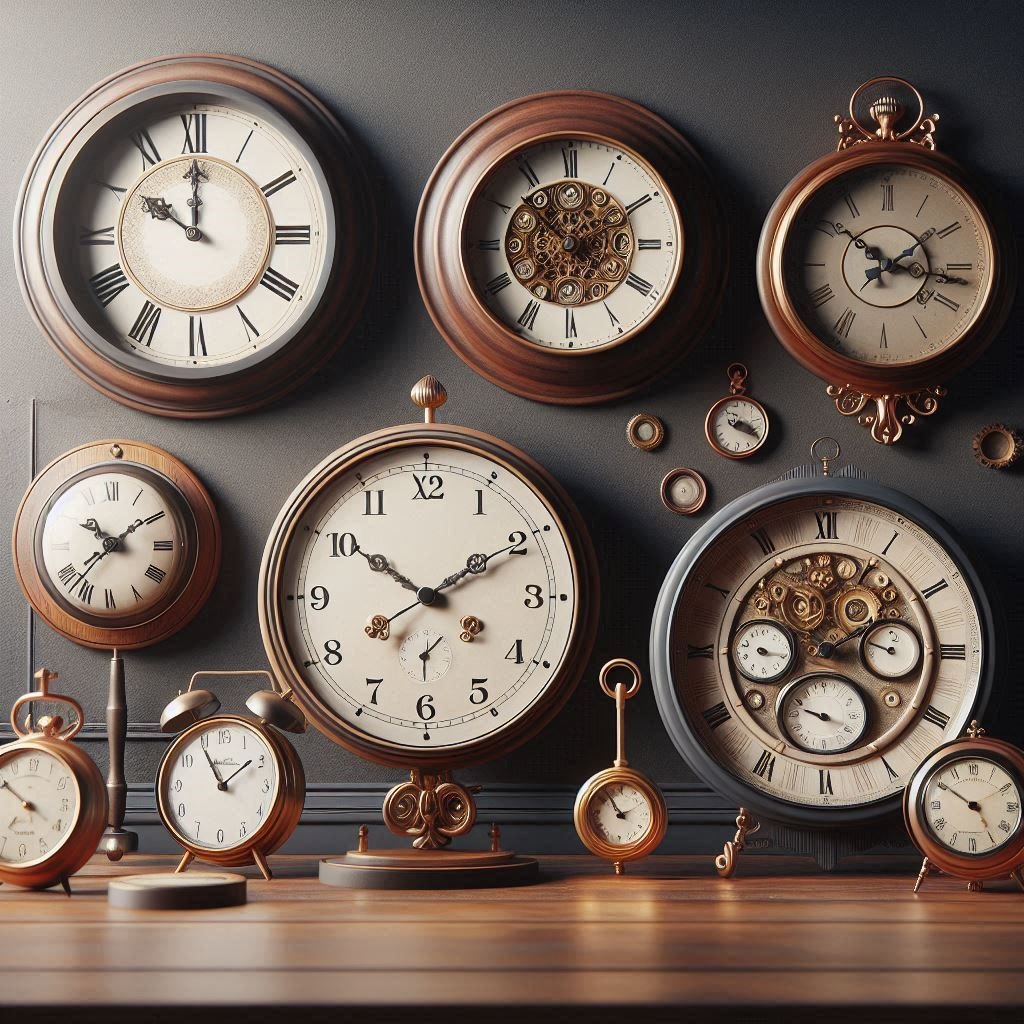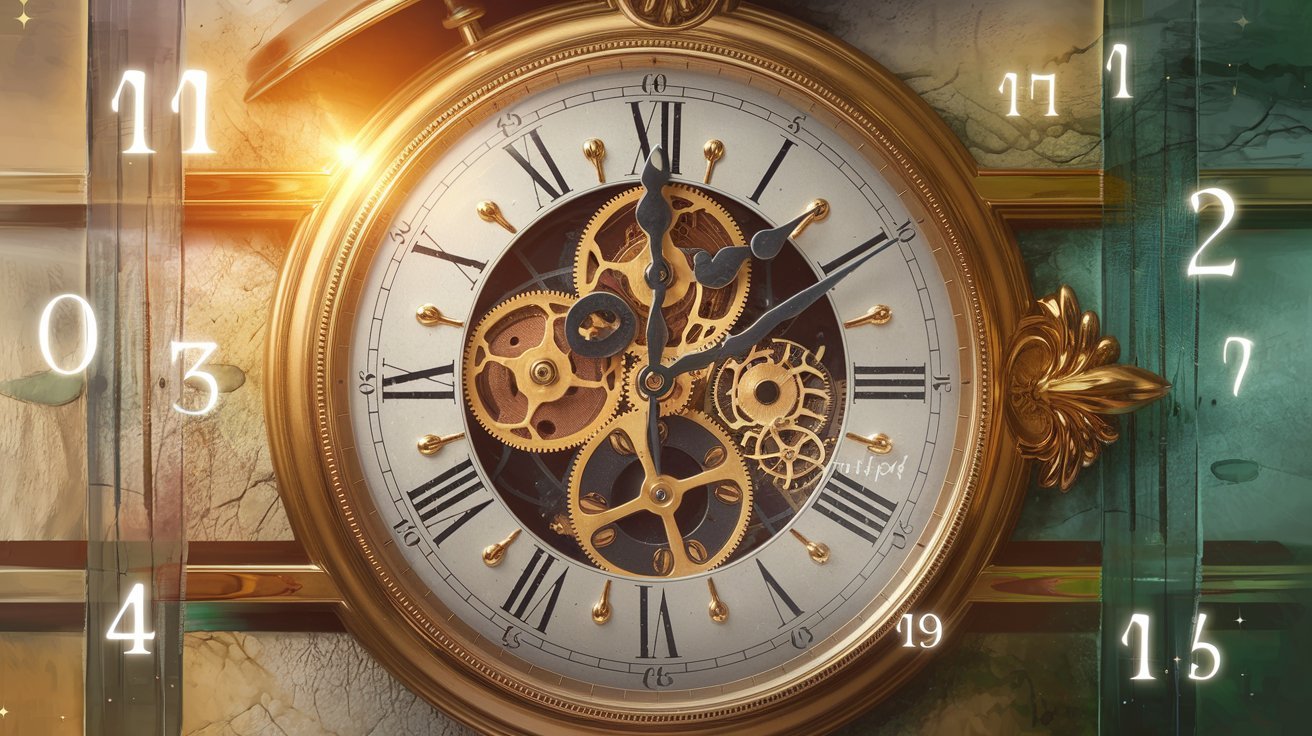Time is a universal constant, yet our perception of it can be both straightforward and enigmatic. Clocks, the quintessential instruments of timekeeping, have long been subjects of intrigue, inspiring riddles that challenge our understanding and tickle our intellect. In this exploration, we delve into the world of clock riddles, unraveling their mysteries and appreciating the cleverness behind each one.

150+ Fun and Tricky Clock Riddles
Simple Clock Riddles
- “I have numbers on my face but can’t find 13 anywhere. What am I?”
Answer: A clock. - “What has hands but can’t clap?”
Answer: A clock. - “I am always on the wall but never fall. What am I?”
Answer: A clock. - “What moves but stays in the same place?”
Answer: A clock’s hands.
Intermediate Clock Riddles
- “I never rest, but I move all day and night. What am I?”
Answer: A clock. - “What time is it when the big hand is on 12 and the little hand is on 5?”
Answer: 5 o’clock. - “What has a face, two hands, but no legs?”
Answer: A clock.
Hard Clock Riddles
- “I am the past, present, and future. I never stop moving. What am I?”
Answer: Time. - “If it takes six men six minutes to fix six clocks, how long does it take one man to fix one clock?”
Answer: Six minutes. - “A grandfather clock and a wristwatch start ticking at the same time. One ticks faster than the other. Which one tells the correct time?”
Answer: The one that has been set correctly!
Easy Clock Riddles
- “What always points in two directions but never moves?”
Answer: A clock’s hands. - “I tick and tock but have no feet. What am I?”
Answer: A clock. - “You can watch me but never see me move. What am I?”
Answer: A wall clock. - “I help you wake up in the morning but never sleep myself. What am I?”
Answer: An alarm clock.
Challenging Clock Riddles
- “What has twelve numbers but only two hands?”
Answer: A clock. - “If you look at me, you can see the past, present, and future at the same time. What am I?”
Answer: A clock face. - “I don’t have a heart, but I can tell you mine is always beating. What am I?”
Answer: A clock. - “If you move me forward, you lose time. If you move me backward, you gain time. What am I?”
Answer: A clock.
Tricky Clock Riddles
- “What can be wound up but never uncoiled?”
Answer: A clock. - “I never stop moving, but I am not alive. What am I?”
Answer: A clock. - “I can be digital or analog, but either way, I tell the truth. What am I?”
Answer: A clock.
“I am full of numbers, but I am not a calculator. What am I?”
Answer: A clock.
Classic Clock Riddles and Their Meanings
1. The Silent Timekeeper
Riddle: “I have a face but no eyes, hands but no arms. What am I?” Answer: A clock.
Analysis: This riddle plays on the anthropomorphic features of a clock. While a clock has a “face” and “hands,” it lacks the sensory and physical attributes associated with these terms in living beings.
2. The Unstoppable Runner
Riddle: “Without feet, I run; without a mouth, I chime. What am I?” Answer: A clock.
Analysis: This riddle emphasizes the continuous movement and sound of a clock. The terms “run” and “chime” are metaphorically applied, prompting solvers to think about objects associated with these actions beyond their literal meanings.
3. The Backward Traveler
Riddle: “What time is it when the clock strikes 13?” Answer: “Time to get a new clock.”Analysis: This riddle introduces an absurdity—a clock striking 13—to prompt lateral thinking. The unexpected scenario suggests that something is amiss.
Why Do We Love Clock Riddles?
Clock riddles captivate us because they transform everyday objects into puzzles that require lateral thinking. By presenting familiar concepts in unfamiliar ways, these riddles encourage us to see beyond the obvious and engage in creative problem-solving.
FAQs About Clock Riddles
1. Why are clock riddles so popular?
Clock riddles are popular because they make us think about time in creative ways. They are fun, engaging, and often use wordplay that challenges our perception.
2. Can solving riddles improve brain function?
Yes! Riddles enhance problem-solving skills, boost memory, and improve critical thinking by making us think outside the box.
3. How can I come up with my own clock riddles?
To create your own clock riddles:
- Identify key features of clocks (e.g., hands, numbers, ticking sound).
- Use metaphors (e.g., “running without legs”).
- Add wordplay or double meanings.
- Test your riddle with others!
4. What are some famous clock riddles in history?
One of the most famous clock riddles is Lewis Carroll’s Alice in Wonderland riddle: “Why is a raven like a writing desk?” While not explicitly about clocks, it plays with time and logic, much like clock riddles do.
Conclusion: Why Clock Riddles Keep Ticking
Clock riddles serve as timeless exercises in wit and perception. They transform the mundane passage of time into a playground for the mind, reminding us that even the most familiar objects can hold mysteries waiting to be uncovered. By engaging with these riddles, we not only entertain ourselves but also sharpen our intellect, proving that the journey to understanding is as significant as the destination itself.
So, whether you’re solving riddles for fun, to test your knowledge, or to challenge a friend, keep in mind that time is always ticking—just like the riddles that keep us thinking! Happy riddle-solving!

